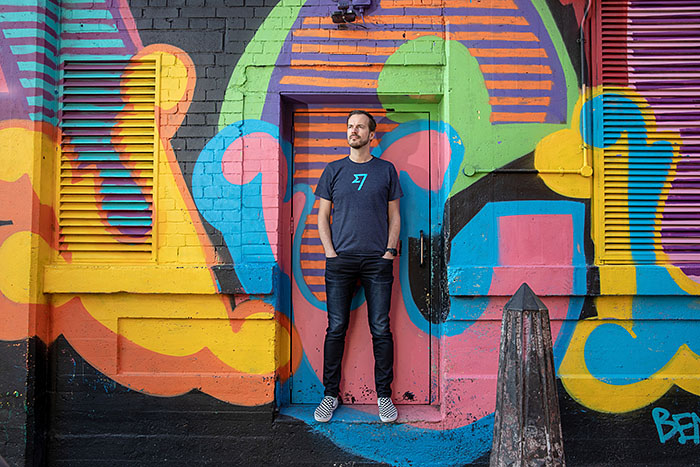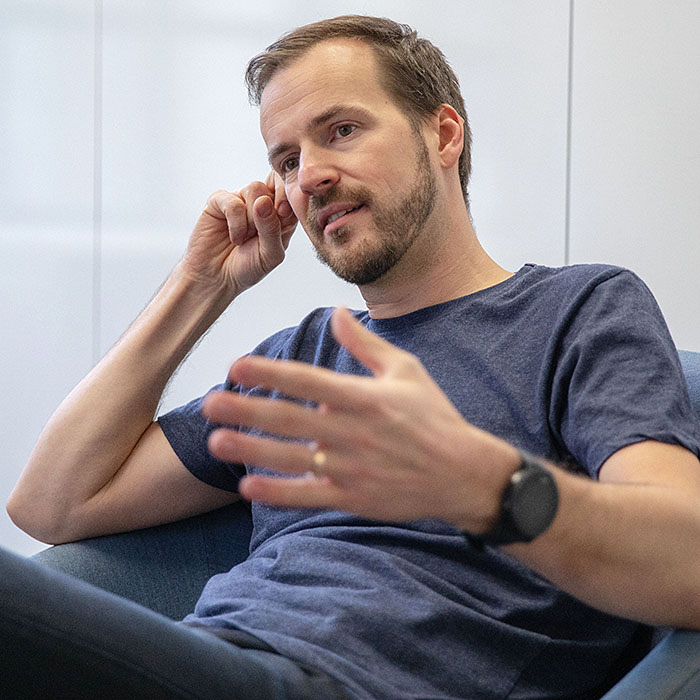What a dropout disrupter can learn from an MBA

Roula Khalaf, Editor of the FT, selects her favourite stories in this weekly newsletter.
Taavet Hinrikus made his name as a disrupter. He dropped out of a computer science degree at the Tallinn University of Technology as a young man and was hired as Skype’s first employee, helping to shake up the telecoms market with low-cost calling over the internet.
Nowadays he is better known as co-founder and chairman of TransferWise, the online money transfer service that in eight years has become one of Europe’s most successful young financial services companies, employing 1,300 people in nine countries and enabling currency exchanges in 40.
In between these innovative entrepreneurial endeavours, however, Hinrikus did something more conventional: in 2010 he went to business school to study for an MBA.
“I left Skype without having a plan, but I was sure I could learn another thing or two at business school,” he recalls, adding that his mother was happy that he would at last have a degree to his name.
Hinrikus secured a place on Insead’s 10-month MBA, at the Singapore campus. He chose Insead partly because of the diversity of its students — the school ensures that no nationality accounts for more than 10 per cent of the intake — and partly because the warm climate was so different to his Baltic homeland. “Estonia is a fricking cold and ugly Nordic country,” he says.

While Hinrikus did not have a definite plan about what to do when he graduated, he knew from the start that he did not want to follow the conventional path of many MBA graduates in taking a corporate job.
“Business school can be a machine to get into corporate jobs,” he says. “But for me business school was a way to rethink my career options, as well as learning some practical skills, such as micro- and macroeconomics.”
Having started work a decade earlier, Hinrikus was among the most experienced, and oldest, members of his MBA cohort. This was disconcerting, he admits, but was also an advantage in terms of understanding the value of what was being taught. “If you have a bit more experience, you see how these things relate to the world,” he says.
But he adds that it is not necessary to go to business school to learn such skills. “Going to Insead meant I was adding a little knowledge to a break between jobs,” he says, admitting that he briefly considered heading to Hawaii to surf instead. However, he would have then missed out on the practical business skills acquired in the classroom. “I came out with some new knowledge and good people to know, a big network.”

Surfing may not be on the curriculum, but Insead students know how to have fun. On occasions a number have been known to overstep the mark, most obviously in the case of Welcome Week, a spoof freshers’ club enrolment programme. The event ran at the school for 35 years before being stopped last year amid accusations made to the French authorities of humiliating “hazing” initiation rituals.
Hinrikus admits that he was a victim of the Welcome Week ruse when he started his MBA but he laments its demise, which he blames on oversensitivity.
“There were things about abuse of power that were not OK [with Welcome Week] and should never be tolerated,” he says. “But a few complaints completely ruined things for the thousands of people for whom Welcome Week was a bit of fun and might have made them a bit more humble.”
Hinrikus was not interested in studying at a school outside of the top tier of MBA providers. He decided against going to the US, partly because that would mean taking a two-year course rather than completing the degree in a matter of months and partly because he had spent his first year of secondary education on an exchange programme at an American school. “If I saw my future in America, it may have made sense,” he says. “But at US business schools you have either Americans or people who want to be American.”

After Insead, Hinrikus returned to Europe, setting up TransferWise in a former tea warehouse in the heart of London’s Shoreditch neighbourhood, the centre of the UK capital’s tech start-up cluster.
He is now 37 and a poster boy for European entrepreneurial endeavour, having built a company that is not only one of the continent’s few dozen “unicorns”, meaning it has achieved the rare feat of being valued at more than $1bn, but has taken the company to profitability.
In the year to March 2018, TransferWise made revenues of £117.3m, an increase of 77 per cent from the previous year. It recorded its first pre-tax profit during this period of £7.9m, compared with a £801,000 loss a year earlier.
“The only thing we think about is how we continue growing,” Hinrikus says. “Profit is just a side product of doing things well.”
Important metrics for the company, he adds, are the volume of transfers, which doubled to £3bn a month in the year to November 2018, and customers, which also doubled during the same period to 4m people. Growth is likely to escalate because of the network effects of online marketplaces like the one TransferWise has built, Hinrikus notes. “We still believe we are only at the beginning.”

The UK referendum vote to leave the EU in 2016 was a personal blow to Hinrikus, who was outspoken in his support for continued membership as well as suddenly finding himself an outsider in his adopted country.
However, he insists that TransferWise is well prepared for any Brexit scenario, particularly now that it has set up an office in Brussels to ensure that it can operate as an EU registered entity. “Brexit is — how should I put it — not exactly helping anyone,” he says. “People are worried, and rightly so, but I’ve always assumed that common sense will prevail and we’ve never really considered that we would need to relocate from London.”
Fast-growing tech companies are big hirers of MBA talent. Amazon is now the largest recruiter at many of the business schools in the FT Global MBA Ranking and is among the biggest hirers at Insead. TransferWise has not followed this route, however, with Hinrikus only one of five MBA graduates on the company’s payroll worldwide.
“We are incredibly focused on building the product and user contact thinking [utilising customer feedback], which they do not teach at business school,” he says, adding that he has encouraged Insead to do something about this.
One thing his alma mater is doing is preparing a case study around the rise of TransferWise and what this can teach other tech start-ups. This is clearly a source of pride for Hinrikus, who says he might change his mind about hiring MBA graduates.
“I think an MBA fits better in a slightly bigger company,” he says. “When we get to 2,000 people, perhaps I would think of hiring some.”
CV
- 1981 Born in Tallinn, Estonia
- 1999 Starts computer science degree at Tallinn University of Technology, but leaves before completing the course. Works as an engineer and project manager on various local tech start-ups
- 2002 Hired as a product development manager at peer-to-peer technology provider Joltid, which is subsequently bought by pioneering music file-sharing service Kazaa
- 2003 Joins internet telephony service Skype as its first hire, moving through various roles, including product and new business development
- 2010 Completes MBA at the Singapore campus of Insead
- 2010 Launches TransferWise in London, three weeks after graduation
Comments